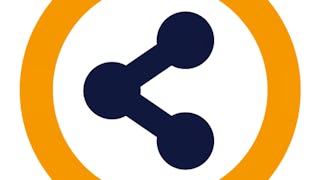This course introduces students to state of the art research in social epistemology. Social epistemology investigates the epistemic effects of social interactions: e.g., how we gain knowledge from social sources (others’ testimony, the media), how we should respond to disagreement, how groups (scientific teams, organisations) can know. It is among the most thriving areas in contemporary philosophy. Results in social epistemology have wide, direct impact on: (1) scientific practice (e.g. concerning academic publishing, guidelines for scientific authorship and collaboration, knowledge policy and debates over the role of the Internet in knowledge transmission and creation); (2) society at large (e.g. concerning voting, legal standards for criminal conviction, cross-cultural communication barriers, licensing mass communication policies, increasing social cohesion).



Expérience recommandée
Compétences que vous acquerrez
- Catégorie : Media and Communications
- Catégorie : Cultural Responsiveness
- Catégorie : Investigation
- Catégorie : Social Sciences
- Catégorie : Research
- Catégorie : Journalism
- Catégorie : Peer Review
- Catégorie : Probability & Statistics
Détails à connaître

Ajouter à votre profil LinkedIn
mai 2025
19 devoirs
Découvrez comment les employés des entreprises prestigieuses maîtrisent des compétences recherchées

Il y a 4 modules dans ce cours
Overview: Introduce the staff and contextualize the course themes around social epistemology. Testimony: Discuss the reductionism debate and the nature of second-hand knowledge. Trust: Explore the relationship between testimonial knowledge and trust. Assertion: Analyze the connection between assertion and knowledge.
Inclus
4 vidéos5 lectures4 devoirs
Group Belief: Examine the relationship between individual and group beliefs. Group Justification: Discuss the nature of justification for group beliefs. Group Action: Explore the conditions under which groups act collectively. Group Evidence: Analyze the concept of group evidence and its implications for rational belief.
Inclus
4 vidéos4 lectures5 devoirs
Expertise and Peerhood: Understand the varieties of expertise and the concept of peerhood. Peer Disagreement: Evaluate rational responses to peer disagreement. Group Disagreement: Discuss the unique features of group disagreement. Knowledge Resistance: Explore the factors contributing to resistance to knowledge.
Inclus
5 vidéos4 lectures5 devoirs1 sujet de discussion
(Dis)information: Discuss the nature of disinformation and its epistemic implications. Norms of Reporting: Evaluate the norms governing media reporting and their impact on information dissemination. Attention and Inquiry: Analyze the relationship between attention, inquiry, and media influence. Nudging and Paternalism: Discuss the role of nudging and paternalism in shaping epistemic practices.
Inclus
5 vidéos4 lectures5 devoirs
Obtenez un certificat professionnel
Ajoutez ce titre à votre profil LinkedIn, à votre curriculum vitae ou à votre CV. Partagez-le sur les médias sociaux et dans votre évaluation des performances.
Instructeur

Offert par
En savoir plus sur Philosophy

Erasmus University Rotterdam

Universitat Autònoma de Barcelona

The State University of New York

Erasmus University Rotterdam
Pour quelles raisons les étudiants sur Coursera nous choisissent-ils pour leur carrière ?





Ouvrez de nouvelles portes avec Coursera Plus
Accès illimité à 10,000+ cours de niveau international, projets pratiques et programmes de certification prêts à l'emploi - tous inclus dans votre abonnement.
Faites progresser votre carrière avec un diplôme en ligne
Obtenez un diplôme auprès d’universités de renommée mondiale - 100 % en ligne
Rejoignez plus de 3 400 entreprises mondiales qui ont choisi Coursera pour les affaires
Améliorez les compétences de vos employés pour exceller dans l’économie numérique
Foire Aux Questions
Access to lectures and assignments depends on your type of enrollment. If you take a course in audit mode, you will be able to see most course materials for free. To access graded assignments and to earn a Certificate, you will need to purchase the Certificate experience, during or after your audit. If you don't see the audit option:
The course may not offer an audit option. You can try a Free Trial instead, or apply for Financial Aid.
The course may offer 'Full Course, No Certificate' instead. This option lets you see all course materials, submit required assessments, and get a final grade. This also means that you will not be able to purchase a Certificate experience.
When you purchase a Certificate you get access to all course materials, including graded assignments. Upon completing the course, your electronic Certificate will be added to your Accomplishments page - from there, you can print your Certificate or add it to your LinkedIn profile. If you only want to read and view the course content, you can audit the course for free.
You will be eligible for a full refund until two weeks after your payment date, or (for courses that have just launched) until two weeks after the first session of the course begins, whichever is later. You cannot receive a refund once you’ve earned a Course Certificate, even if you complete the course within the two-week refund period. See our full refund policy.
Plus de questions
Aide financière disponible,


